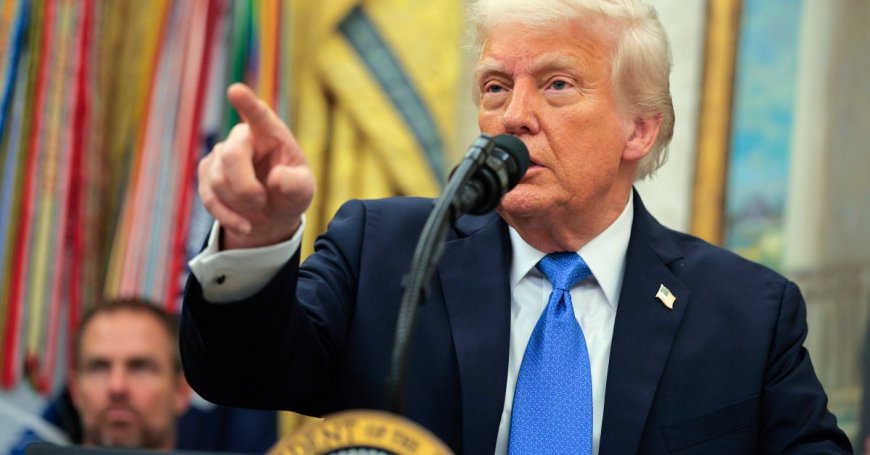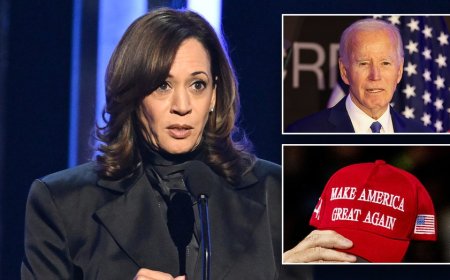Trump Agrees to Extend Deadline After Threatening E.U. With 50% Tariff, With Talks Set to ‘Begin Rapidly’
Ursula von der Leyen, president of the European Commission, said: "Europe is ready to advance talks swiftly and decisively."


President Donald Trump took to Truth Social on Sunday evening to announce that he has granted the European Union (E.U.) a deadline extension on his threat to enforce a 50% tariff starting on June 1. Trump revealed that progress had been made after he received a call from Ursula von der Leyen, the president of the European Commission, the E.U.’s executive arm. [time-brightcove not-tgx=”true”]
“I received a call today from Ursula von der Leyen, president of the European Commission, requesting an extension on the June 1st deadline on the 50% Tariff with respect to trade and the European Union. I agreed to the extension—July 9, 2025,” Trump said. “It was my privilege to do so. The Commission president said that talks will begin rapidly.”
Echoing Trump’s sentiment, von der Leyen said that the pair had shared a “good call.” In an update on X, she said: “The E.U. and U.S. share the world’s most consequential and close trade relationship. Europe is ready to advance talks swiftly and decisively.”
The E.U. is one of Washington’s top commercial partners, and is the largest trading bloc in the world.
In a sharp escalation of trade negotiations with the E.U., Trump announced on Friday that he was “recommending a straight 50% tariff on the European Union, starting on June 1, 2025.”
“The European Union, which was formed for the primary purpose of taking advantage of the United States on TRADE, has been very difficult to deal with,” Trump claimed. “Their powerful trade barriers, VAT taxes, ridiculous corporate penalties, non-monetary trade barriers, monetary manipulations, unfair and unjustified lawsuits against Americans companies, and more, have led to a trade deficit with the U.S. of more than $250,000,000 a year, a number which is totally unacceptable. Our discussions with them are going nowhere!”
As he has said elsewhere, Trump went on to add: “There is no tariff if the product is built or manufactured in the United States.”
Later in the Oval Office, Trump defended his announcement, complaining about the E.U.’s business dealings and citing the U.S. goods trade deficit with the E.U., which was $235.6 billion in 2024, according to U.S. Commerce Department data.
“I’m not looking for a deal,” Trump told reporters. “We’ve set the deal—it’s at 50%.”
U.S. Treasury Secretary Scott Bessent said on Fox News that he hoped Trump’s tariff threat “would light a fire under the E.U.” and speed up negotiations, which he maintains have been moving at a slower pace compared to others.
And it seems to have done just that.
Trump’s initial April 2 “Liberation Day” tariffs included a blanket 10% tariff on nations doing business with the U.S., plus additional “reciprocal” tariffs for some. The E.U. was hit with a 20% reciprocal tariff.
In response, von der Leyen issued a strong statement at the time, calling the move “a blow to the world economy,” and vowing that the E.U. would issue countermeasures.
“We are in this together. If you take on one of us, you take on all of us. Europe stands together for our businesses, for our workers and for all Europeans,” she said, before highlighting her eagerness to move from “confrontation to negotiation.”
The E.U. voted to retaliate on some of Trump’s tariffs, but such discussions were halted when Trump announced a 90-day pause on most “reciprocal” charges. The 90-day pause, set to expire on July 9, offered the E.U. a reprieve, but Trump’s threat to enforce a 50% tariff starting June 1 spiked tensions once more and the markets responded negatively. While the threat reignited fears of a U.S.-E.U. trade war, Trump agreeing to stick to the original July 9 deadline will likely ease concerns.
Some hours after Trump’s initial announcement on Friday, Maroš Šefčovič, Commissioner for Trade and Economic Security at the European Commission, posted on X that he had engaged in discussions with Trump’s Secretary of Commerce, Howard Lutnick, and the U.S. Trade Representative Jamieson Greer.
“The E.U.’s fully engaged, committed to securing a deal that works for both. E.U. remains ready to work in good faith,” Šefčovič said, before reiterating the E.U.’s stance that negotiation is preferred over confrontation. “E.U.-U.S. trade is unmatched and must be guided by mutual respect, not threats.” Šefčovič concluded on a defiant note: “We stand ready to defend our interests.”
How Europe reacted to the prospect of a 50% tariff
Europe’s political and business leaders alike reacted to Trump’s announcement on Friday, with many expressing concern and disappointment.
Hakan Samuelsson, the CEO of Volvo Cars, which is based in Sweden, told Reuters that the 50% tariff would limit the company’s ability to sell some of its vehicles in the U.S.—such as the ones made in Belgium—and said that its customers would have to pay a large part of the cost increases. “I believe there will be a deal soon. It could not be in the interest of Europe or the U.S. to shut down trade between them,” he said, expressing hope that negotiations will move forward in a positive way, despite the tariff threat.
Micheál Martin, the Irish Taoiseach (Prime Minister), wrote on X that he found Trump’s announcement “enormously disappointing” and emphasized that he believes “tariffs are damaging to all sides.”
“A negotiated outcome is the best possible result for both sides, as well as for global trade,” Martin said. “The E.U. has been engaging in good faith in that process.”
German Foreign Minister Johann Wadephul told reporters that Germany would back the E.U. in “defending Europe” through negotiations that allow Europe access to the U.S. market. “I think such tariffs help no one, but would lead to economic development in both markets suffering,” Wadephul said.
France’s Minister Delegate for Foreign Trade Laurent Saint-Martin emphasized in a televised interview that the trade war needs “de-escalation,” echoing sentiments he had previously expressed via social media.
“Trump’s new threats of tariff increases are not helping during the negotiation period between the European Union and the United States,” Saint-Martin wrote on X. “We maintain the same line: de-escalation but are ready to respond.”

A tense history between Trump and the E.U.
Trump’s tariff threat came after years of him highlighting dissatisfaction with trade between the U.S. and the E.U.
During his first term, Trump imposed tariffs on steel and aluminium imports from the E.U., Canada, and Mexico, which at the time brought the U.S. to the brink of a trade war. In 2018, when asked about the tariffs, Trump said that “nobody treats us much worse than the European Union” and argued the bloc was “formed” to “take advantage of” the U.S.
During the first few months of Trump’s second term in the White House, tensions have grown, both as a result of his tumultuous trade policies and his geopolitical moves in regards to the Russia-Ukraine war.
Meanwhile, outside of the E.U., Trump has had some success with his trade deals. Trump said on Truth Social on Friday that the U.S. dealings with the United Kingdom are “working out well for all.” This came after the U.S. and the U.K. announced a trade agreement on May 8, one which Trump hailed for its “reciprocity and fairness.”
Progress was made between the U.S. and China earlier this month when both nations agreed to drastically reduce tariffs on each other for an initial 90-day period, which came into effect on May 14.



















































